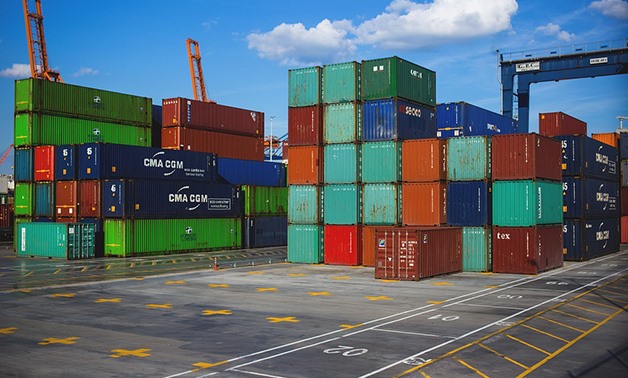
FILE – Exports
CAIRO – 27 May 2019: Egypt's non-petroleum exports to Indonesia hiked 19 percent in 2018, recording $138 million, according to a report issued by the Egyptian trade office in Jakarta Sunday.
The report added that Egyptian imports from Indonesia dropped 17.6 percent to reach $1.33 billion.
First Undersecretary of the Ministry of Commerce and Industry and Head of the Commercial Representation Authority Ahmed Antar said that the increase of the Egyptian non-petroleum export to Indonesia came as a result of introducing new export items such as ammonium nitrate, car tires and beans.
He added that other items of exports witnessed a significant increase, such as non-phosphate or chemical fertilizers, which recorded $42 million, with an increase of 13 percent; calcium phosphate and aluminum with a 4.7 percent increase, recording $28 million; in addition to dates which recorded $22 million, marking an increase of 60 percent; and sugar molasses which recorded $15 million, up 32 percent.
Antar attributed the decline of imports to the decrease in imports of several items of palm oil, whose derivatives represent 10 items among the top 50 items in the Egyptian imports from Indonesia, including imports of palm oil which declined from $173 million to $21 million. This is in addition to solidified palm oil, which recorded a decrease of $43.7 million, and natural rubber, which decreased by 6.8 percent.
He pointed out that there are an increased import items, including a refined palm oil valued at $272 million and an increase of 1.5 percent, single yarns of synthetic fibers worth $67 million, or 9.6 percent, and coffee rose by $56 million, with an increase of 7.8 percent, as well as car tires by $33.6 million, or 28 percent.
Antar referred that 50 items of our imports from Indonesia, which accounted for about 94 percent of the total value of imports from Indonesia during 2018, are strategic goods and intermediary commodities with no local alternative or limited local alternatives such as palm oil and its products, coffee, wood and paper.

Comments
Leave a Comment